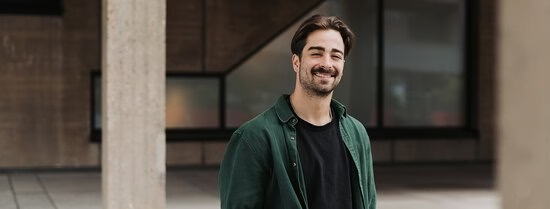The study programme in a nutshell
Cultural Economics and Entrepreneurship is one of the three specialisations within the master Arts and Culture Studies. This specialisation explores the themes creativity, innovation, and entrepreneurship thoroughly within the cultural and creative sectors. These themes will be explored in a variety of lectures, seminars, and research workshops, offering a mix of theories, empirical research, and research methods.
What you will learn
As a Cultural Economics and Entrepreneurship student you will acquire a solid background in cultural economics, creative entrepreneurship, and research methods. During the programme, you will learn about the latest theoretical developments in the economics of cultural and creative industries and cultural organisations. You will focus on management, innovation and digitalisation within the context of cultural heritage, performing arts, fashion, music, visual arts and video games. In seminars, workshops and during fieldtrips to a variety of cultural organisations you will apply your knowledge on real, current cases.
Master thesis
At the end of the year, you will combine everything you have learned in your master thesis. Your master thesis is the moment to put your gained knowledge and skills to the test. Supervised by one of our experienced lecturers, you will conduct empirical research and write a thesis on a topic of your choice.
Students before you wrote their master thesis on subjects such as the digitalisation of the music industry, NFTs and the changing art market, creative cities and clusters, craft entrepreneurship, female entrepreneurship, decision making in performing arts, cultural leadership in museums, consumption of videogames, and much more.
Course overview
Below you can view the study schedule of the master specialisation Cultural Economics and Entrepreneurship of this year. If you want to know more about a particular course, you can enter the course code in the Course Catalogue.
Study schedule
Term 1
Student workload: 5 EC
Student workload: 5 EC
Student workload: 5 EC
Student workload: -
Term 2
Student workload: 5 EC
Student workload: 5 EC
Term 3
| Cultural Management | CC4105 |
| International Art Markets | CC4117 |
| Economics of Fashion and Sustainability | CC4119 |
| Project: Applied Cultural Entrepreneurship | CC4160 |
| Museums in Context | CC4122 |
| Assessing the impact of Culture and Creativity in Society | CC4123 |
| Contemporary Aesthetics (MA ACS)* | CC4025 |
| Media Tourism* | CC4015 |
*Students can only choose one among Media Tourism (CC4015) and Contemporary Aesthetics (CC4025).
Term 4
Student workload: 20 EC
The Master specialisation Cultural Economics and Entrepreneurship can be followed fulltime or parttime. When you study parttime, you have to obtain the same amount of study points. The courses are spread over two years. No evening classes are offered. Parttime students attend elements of the fulltime programme during the day. Parttime students are advised to reach out to the student advisor to discuss their study planning.

